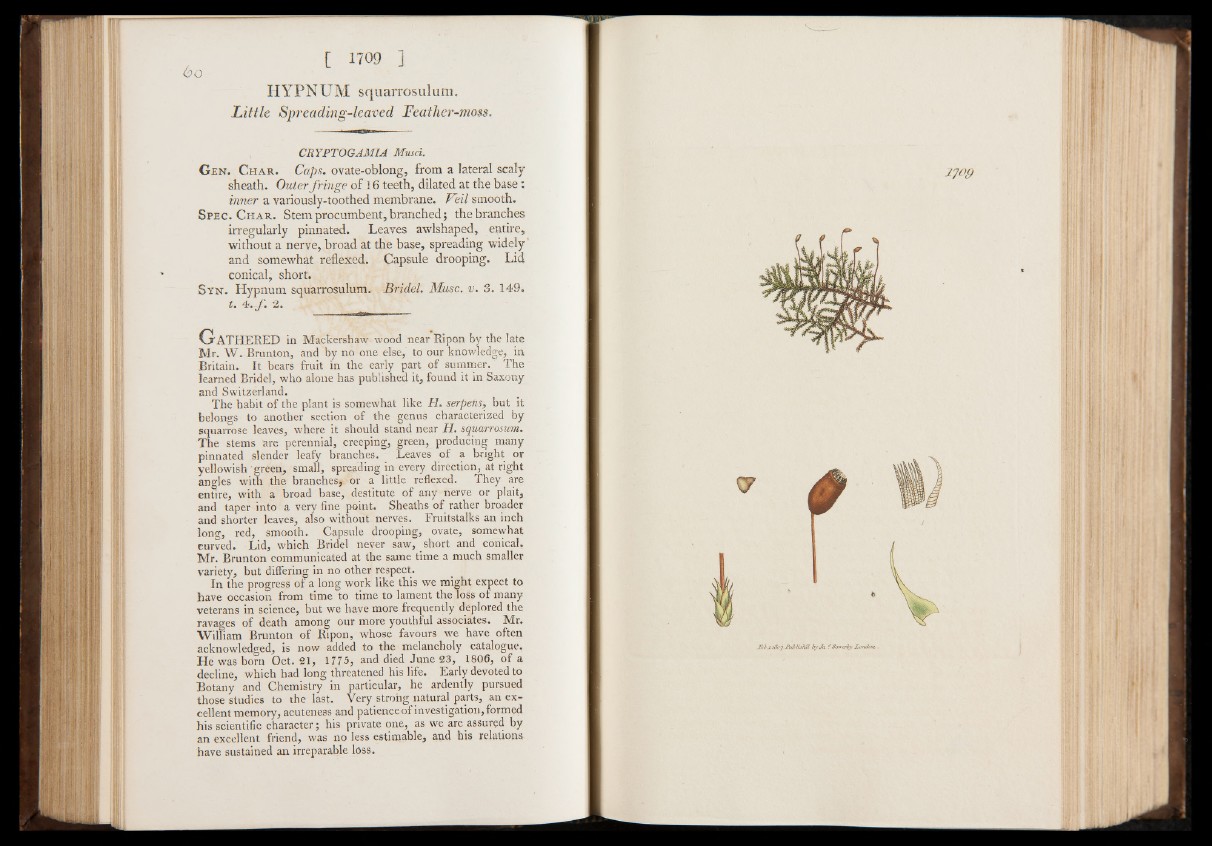
6o
[ 1 7 0 9 ]
HYPNUM squarrosulum.
Little Spreading-leaved, Feather-moss.
CRYPTOGAMIA Musci.
Gen. Char. Caps, ovate-oblong, from a lateral scaly
sheath. Outer fr in g e of 16 teeth, dilated at the ba se ;
inner a variously-toothed membrane. Veil smooth.
Spec. Char. Stem procumbent, branched; the branches
irregularly pinnated. Leaves awlshaped, entire,
without a nerve, broad at the base, spreading widely
and somewhat reflexed. Capsule drooping. Lid
conical, short.
Syn. Hypnum squarrosulum. Bridel. Muse. v. 3. 149.
t. 4 . / . 2.
GATHERED in Mackershaw wood near Ripon by the late
Mr. W . Brunton, and by no one else, to our knowledge, in
Britain. It bears fruit in the early part of summer. The
learned Bridel, who alone has published it, found it in Saxony
and Switzerland.
The habit of the plant is somewhat like H. serpens, but it
belongs to another section of the genus characterized by
squarrose leaves, where it should stand near H. squarrosum.
The stems are perennial, creeping, green, producing many
pinnated slender leafy branches. Leaves of a bright or
yellowish green, small, spreading in every direction, at right
angles with the branches, or a little reflexed. They are
entire, with a broad base, destitute of any nerve or plait,
and taper into a very fine point. Sheaths of rather broader
and shorter leaves, also without nerves. Fruitstalks an inch
long, red, smooth. Capsule drooping, ovate, somewhat
curved. Lid, which Bridel never saw, short and conical,
Mr. Brunton communicated at the same time a much smaller
variety, but differing in no other respect.
In the progress of a long work like this we might expect to
have occasion from time to time to lament the loss of many
veterans in science, but we have more frequently deplored the
ravages of death among our more youthful associates. Mr.
William Brunton of Ripon, whose favours we have often
acknowledged, is now added to the melancholy catalogue.
He was born Oct. 2 1 , 1 7 75, and died June 2 3 , 1 8 06, of a
decline, which had long threatened his life. Early devoted to
Botany and Chemistry in particular, he ardently pursued
those studies to the last. Very strong natural parts, an excellent
memory, acuteness and patience of investigation, formed
his scientific character; his private one, as we are assured by
an excellent friend, was no less estimable, and his relations
have sustained an irreparable loss.